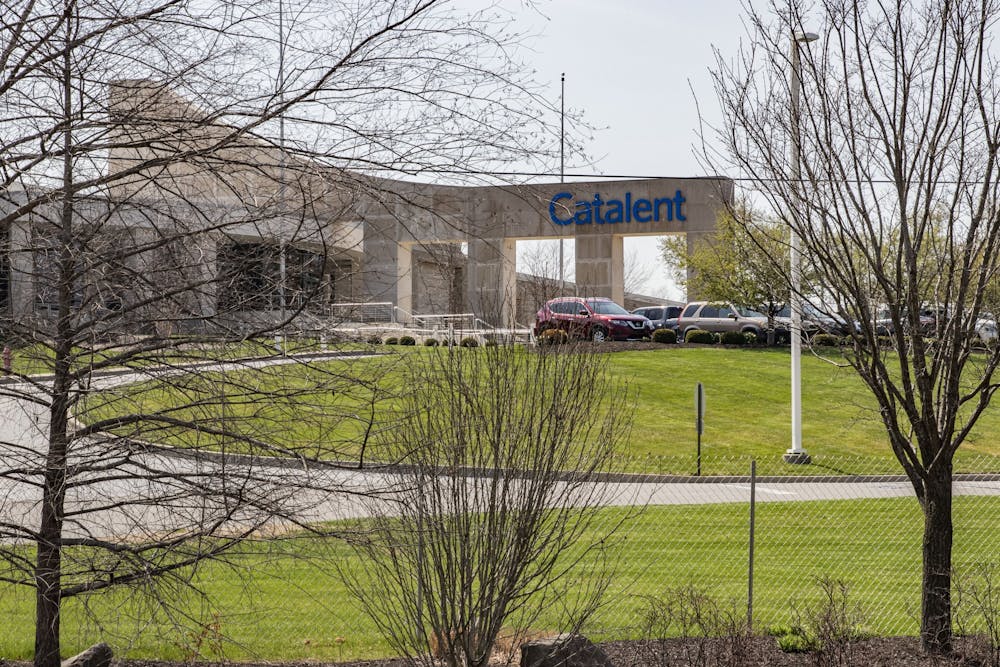Pharmaceutical company Catalent purchased Bloomington-based company Cook Pharmica in 2017 for nearly $950 million. In the buyout, Catalent took control of a major piece of Bloomington real estate.
Since purchasing Cook in 2017, the company has invested millions of dollars into its Bloomington facility. First came a $14 million investment in 2018 to expand packing capabilities. Then, the next year, the company invested $200 million, followed by another $50 million investment in 2020.
Now, Catalent wants to expand again. But this time, they’re thinking about a much bigger investment — nearly $350 million — that carries a significant price tag for Bloomington: $43 million worth of tax breaks.
If Catalent chooses to invest again in its Bloomington facility, its proposal would add a thousand jobs to its current Bloomington workforce of 3,200 employees. The lowest starting full-time wage for the additional workers would be $19 an hour, according to city documents.
There’s no guarantee Catalent is coming to Bloomington, though. There are other cities that want Catalent’s investment.
What is Bloomington doing for Catalent’s investment?
In an attempt to encourage Catalent to choose Bloomington over other cities, the Bloomington City Council is considering legislation to offer a series of tax breaks to the company.
If approved, those tax breaks could register above $43 million. The legislation earned the endorsement of many key stakeholders, including Bloomington Mayor John Hamilton and the Bloomington Economic Development Corporation.
“Economic development works to create conditions for prosperity for our neighbors, which includes wage growth,” BEDC President Jennifer Pearl said at the city council’s Feb. 16 meeting. “This is clearly reflected in Catalant’s proposal with an average of $32 an hour.”
Hamilton’s support for the legislation means only five council members need to support the legislation Wednesday for Bloomington to offer the tax breaks. That seems likely, considering the legislation was unanimously advanced Feb. 16.
Why might Catalent want Bloomington?
It’s not explicitly clear which cities Bloomington is competing against, but cities in Missouri, Wisconsin and Maryland were mentioned as other potential candidates for Catalent’s investment at the council’s Feb. 16 meeting.
There are Catalent facilities in each of those states, but none of those facilities are as large as the Catalent location in Bloomington.
Representatives from Catalent said in a Feb. 16 meeting that Bloomington’s proximity to Indianapolis is a strong advantage for the company.
“I am fighting hard (for Bloomington),” Catalent General Manager Andrew Espejo told the council. “I've been to both (Madison and Kansas City), and I can't imagine why anybody wouldn't want to pursue a project here.”
Espejo specifically mentioned the Indianapolis International Airport and the FedEx Hub in Indianapolis as major positives for the company.
What are the leading concerns surrounding the potential investment?
While every member of the council voted to advance the legislation earlier this month, some council members expressed concerns, with a lack of housing supply in the city topping the list.
Councilmember Steve Volan said Catalent should consider strategic options for housing, including working with a developer to build housing for employees on the site. Councilmember Kate Rosenbarger also expressed concerns that Bloomington does not have the housing supply for an additional 1,000 people, reviving talking points from last year’s debate over the city zoning code.
“Our (zoning code) basically has frozen our core neighborhoods,” she said on Feb. 16. “Fifteen duplexes a year isn't going to really add to density.”
Volan also asked questions about parking at the facility, asking if employees would have to pay for parking, which might encourage other methods of transportation.
Espejo seemed open to conversations regarding the company’s parking policy but could not commit to any immediate decisions.
The council will take a final vote Wednesday after a public comment period at its meeting.



